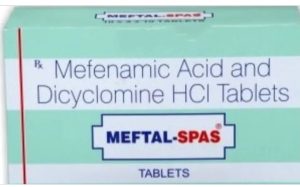Vitamin C Clinical Trials For Coronavirus Underway In China – Latest Updates
12 min read
 Does vitamin C cure Coronavirus? No? Can vitamin C treat Coronavirus? We can’t say it does, but at the same time, we can’t say it doesn’t either. This is why multiple clinical trials are underway in China to investigate whether or not vitamin C infusion has any effect against Coronavirus and those infected with it. The idea that vitamin C may help in treating the Coronavirus, at least in the west, seems to be dubbed as ‘fake news,’ which is odd given the fact that authorities should be mentioning that at this point it’s inconclusive.
Does vitamin C cure Coronavirus? No? Can vitamin C treat Coronavirus? We can’t say it does, but at the same time, we can’t say it doesn’t either. This is why multiple clinical trials are underway in China to investigate whether or not vitamin C infusion has any effect against Coronavirus and those infected with it. The idea that vitamin C may help in treating the Coronavirus, at least in the west, seems to be dubbed as ‘fake news,’ which is odd given the fact that authorities should be mentioning that at this point it’s inconclusive.
There remains to be a clear yes or no answer but researchers are hypothesizing that it might have a positive effect which is why in Shanghai, China, vitamin C is being named as part of their overall treatment plan, with official clinical trials underway.
Last month, the US National Library of Medicine posted information about their clinical trials on their website. The title of one of the trials is “Vitamin C Infusion for the Treatment of Severe 2019-nCoV Infected Pneumonia.” The sponsor is ZhiYong Peng, and the responsible party is Zhongnan Hospital in Wuhan University (ZNWU).
2019 new coronavirus (2019-nCoV) infected pneumonia, namely severe acute respiratory infection (SARI) has caused global concern and emergency. There is a lack of effective targeted antiviral drugs, and symptomatic supportive treatment is still the current main treatment for SARI. Vitamin C is significant to the human body and plays a role in reducing the inflammatory response and preventing the common cold. In addition, a few studies have shown that vitamin C deficiency is related to the increased risk and severity of influenza infections. We hypothesized that Vitamin C infusion can help improve the prognosis of patients with SARI. Therefore, it is necessary to study the clinical efficacy and safety of vitamin C for the clinical management of SARI through randomized controlled trials during the current epidemic of SARI.
Vitamin C, also known as ascorbic acid, has antioxidant properties. When sepsis happens, the cytokine surge caused by sepsis is activated, and neutrophils in the lungs accumulate in the lungs, destroying alveolar capillaries. Early clinical studies have shown that vitamin C can effectively prevent this process. In addition, vitamin C can help to eliminate alveolar fluid by preventing the activation and accumulation of neutrophils, and reducing alveolar epithelial water channel damage. At the same time, vitamin C can prevent the formation of neutrophil extracellular traps, which is a biological event of vascular injury caused by neutrophil activation. Vitamins can effectively shorten the duration of the common cold. In extreme conditions (athletes, skiers, art workers, military exercises), it can effectively prevent the common cold. And whether vitamin C also has a certain protective effect on influenza patients, only a few studies have shown that vitamin C deficiency is related to the increased risk and severity of influenza infections. In a controlled but non-randomized trial, 85% of the 252 students treated experienced a reduction in symptoms in the high-dose vitamin C group (1g / h at the beginning of symptoms for 6h, followed by 3 * 1g / day). Among patients with sepsis and ARDS, patients in the high-dose vitamin group did not show a better prognosis and other clinical outcomes. There are still some confounding factors in the existing research, and the conclusions are different.
Therefore, during the current epidemic of SARI, it is necessary to study the clinical efficacy and safety of vitamin C for viral pneumonia through randomized controlled trials.





